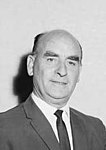
Elections were held in the Australian state of Queensland on 12 November 1977 to elect the 82 members of the state's Legislative Assembly.
The Western Australian National Party, officially known as the National Party of Australia (WA) Inc, and branded as Nationals WA, is a political party in Western Australia. It is affiliated with the National Party of Australia, but maintains a separate structure and identity. Since the 2021 state election, the Nationals have been the senior party in an opposition alliance with the WA Liberal Party in the state parliament.
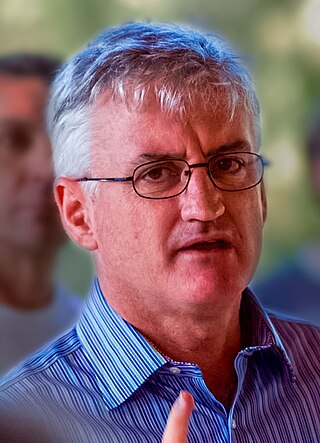
The 2008 Western Australian state election was held on Saturday 6 September 2008 to elect 59 members to the Legislative Assembly and 36 members to the Legislative Council. The incumbent centre-left Labor Party government, in power since the 2001 election and led since 25 January 2006 by Premier Alan Carpenter, was defeated by the centre-right Liberal Party opposition, led by Opposition Leader Colin Barnett since 6 August 2008.
Elections were held in the state of Western Australia on 23 February 1980 to elect all 55 members to the Legislative Assembly and 16 members to the 32-seat Legislative Council. The Liberal-National Country coalition government, led by Premier Sir Charles Court, won a third term in office against the Labor Party, led by Opposition Leader Ron Davies.

Elections were held in the state of Western Australia on 19 February 1977 to elect all 55 members to the Legislative Assembly and 17 members to the 32-seat Legislative Council. The Liberal-National Country coalition government, led by Premier Sir Charles Court, won a second term in office against the Labor Party, led by Opposition Leader Colin Jamieson.

Elections were held in the state of Western Australia on 20 February 1971 to elect all 51 members to the Legislative Assembly and 15 members to the 30-seat Legislative Council. The four-term Liberal-Country Party coalition government, led by Premier David Brand, was defeated by the Labor Party, led by Opposition Leader John Tonkin.
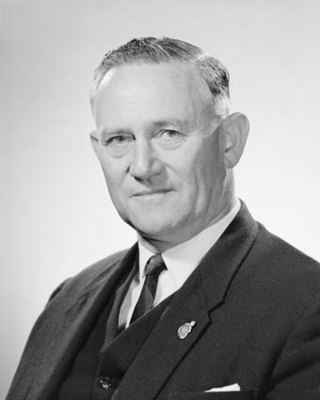
Elections were held in the state of Western Australia on 23 March 1968 to elect all 51 members to the Legislative Assembly and 15 members to the 30-seat Legislative Council. The Liberal-Country coalition government, led by Premier Sir David Brand, won a record fourth term in office against the Labor Party, led by Opposition Leader John Tonkin.

Elections were held in the state of Western Australia on 31 March 1962 to elect all 50 members to the Legislative Assembly. The Liberal-Country coalition government, led by Premier Sir David Brand, won a second term in office against the Labor Party, led by Opposition Leader Albert Hawke.

Elections were held in the state of Western Australia on 21 March 1959 to elect all 50 members to the Legislative Assembly. The result was a hung parliament—the two-term Labor government, led by Premier Albert Hawke, was defeated with an average swing against it of about 7 per cent, but the Liberal-Country Party coalition, led by Opposition Leader David Brand, won exactly half of the seats, and needed the support of at least one of the two Independent Liberal members to obtain a majority in the Assembly. The situation remained precarious throughout the term—while Bill Grayden joined the LCL the following year, giving the Coalition a one-seat majority, the other Independent Liberal, Edward Oldfield, joined the Labor Party.

Elections were held in the state of Western Australia on 7 April 1956 to elect all 50 members to the Legislative Assembly. The Labor Party, led by Premier Albert Hawke, won a second term in office against the Liberal-Country coalition, led by Sir Ross McLarty.

Elections were held in the state of Western Australia on 14 February 1953 to elect all 50 members to the Legislative Assembly. The two-term Liberal-Country Party coalition government, led by Premier Sir Ross McLarty, was defeated by the Labor Party, led by Opposition Leader Albert Hawke.
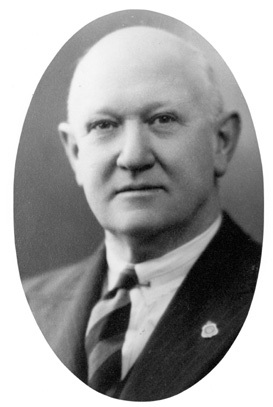
Elections were held in the state of Western Australia on 25 March 1950 to elect all 50 members to the Legislative Assembly. The Liberal-Country coalition government, led by Premier Ross McLarty, won a second term in office against the Labor Party, led by Opposition Leader Frank Wise.

Elections were held in the state of Western Australia on 15 March 1947 to elect all 50 members to the Legislative Assembly. The result was a hung parliament—the four-term Labor government, led by Premier Frank Wise, was defeated with a swing of approximately 7%. The Liberal-Country Coalition won exactly half of the seats, one short of a majority, needed the support of the Independent members Harry Shearn and William Read to govern.
The Court–McPharlin Ministry was the 26th Ministry of the Government of Western Australia, and was led by Liberal Premier Sir Charles Court and his deputy, National Country Party leader Ray McPharlin. It succeeded the Tonkin ministry on 8 April 1974, following the defeat of the Labor government at the 1974 election nine days earlier. The Ministry collapsed when McPharlin led the National Country Party out of the Coalition on 20 May 1975, and was reconstituted on 5 June 1975 as the Court Ministry.
The Court ministry was the 27th ministry of the Government of Western Australia, led by Liberal Premier Sir Charles Court and deputy Des O'Neil. It commenced on 5 June 1975, following the Court–McPharlin Ministry, 15 months after the Coalition's electoral defeat of the Tonkin Labor government. It was followed by the O'Connor Ministry upon Court's retirement as Premier on 25 January 1982.

Elections were held in the state of Western Australia on 8 April 1933 to elect all 50 members to the Legislative Assembly. The one-term Nationalist-Country coalition government, led by Premier Sir James Mitchell, was defeated by the Labor Party, led by Opposition Leader Philip Collier.

Elections were held in the Australian state of Queensland on 7 March 1953 to elect the 75 members of the state's Legislative Assembly. The Labor government was seeking its eighth continuous term in office since the 1932 election. It was the first electoral test for Vince Gair, who had become Premier of Queensland 14 months earlier after the death of Ned Hanlon.

Elections were held in the Australian state of Queensland on 3 August 1957 to elect the 75 members of the state's Legislative Assembly. The major parties contesting the election were the Queensland Labor Party led by Premier Vince Gair, the Labor Party led by former Deputy Premier Jack Duggan, and the Country-Liberal coalition led by Frank Nicklin.
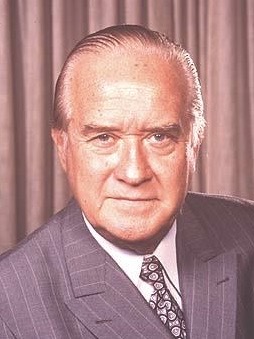
Elections for the New South Wales Legislative Assembly were held in the state of New South Wales, Australia, on Saturday 17 November 1973. The result was a win for the Liberal-Country Party coalition under Sir Robert Askin, which had been in office since 1965. As of 2023, this was the first and only time the Coalition won a fourth-term in New South Wales.
Arthur Raymond Tonkin was an Australian politician who was a Labor Party member of the Legislative Assembly of Western Australia from 1971 to 1987. He was a minister in the government of Brian Burke.

